- AdventHealth

It’s likely that this 25th anniversary observation won’t be on many calendars, but for the health care industry November 1999 represents a pivotal moment in the patient safety journey. That was when the Institute of Medicine (now called the National Academy of Medicine) issued its report, “To Err is Human: Building a Safer Health System.”
The report, leaked early and released the following year as a book, was based on the premise that the tens of thousands of medical errors occurring each year were not the result of bad people working in health care, but rather that good people were working in bad systems that needed to be made safer.
It was, in the words of William Scharf, MD, executive clinical director of quality and safety for AdventHealth, a “paradigm shift.” And while there was some initial pushback from the health-care industry, “it wasn’t as much as I thought it would be.” There was, he said, the realization that things were not necessarily as good as those in the industry thought they were.
“AdventHealth is on a journey toward zero preventable harm.”
Dr. Scharf said he expects the number of medical errors to continue declining. “I would have liked to see us farther, but we have made some impressive gains. Twenty-five years ago, there were paper charts, dangerous abbreviations, poor handwriting, incomplete orders. Now, we have electronic medical records, bar coding readers to make sure drugs are correct, sophisticated IV pump systems, all investments to make us safe.”
For Dr. Scharf, the anniversary is an important one to note. “We still have a lot of harm in the health care system, 25 years later. The goal was very bold at that time – to decrease harm by 50 percent within about five years. That did not happen.”
What did occur, however, is that “ ‘To Err is Human’ changed everything,” Dr. Scharf said. It switched the focus from error to safety, from finger-pointing to action.
“A lot of people now are talking about zero harm,” Dr. Scharf said. “It’s an aspirational goal, and there are a couple of ways people can look at that. Some might say, ‘Good luck, there’s no way you’re going to get it,’ and it becomes just discouraging. On the other hand, some people can look at zero harm and say, ‘OK that’s our target, let’s take care of everything else we can, moving toward zero harm.’
“AdventHealth is on a journey toward zero preventable harm,” Dr. Scharf said.

On that journey, AdventHealth continues to embrace a comprehensive, award-winning approach that drives continuous improvement in care. Here are three top insights from the health care system’s patient safety journey, as shared by Dr. Scharf:
1. Leadership and Vision Drive Safety Success
Leadership has been at the heart of AdventHealth’s progress in patient safety. A defining moment came in 2015, when senior leaders made a strategic decision to prioritize safety as a core value. That vision led to the implementation of clinical imperatives and a systemwide expectation that hospitals strive for the highest ratings from The Leapfrog Group and the Centers for Medicare & Medicaid Services (CMS).
Dr. Scharf reflects, “It was a deliberate choice to pursue excellence in safety. Our leadership recognized the importance of setting high standards, and this commitment has resulted in significant improvements, reflected in AdventHealth's fall safety grades from Leapfrog. Nearly 70 percent of AdventHealth hospitals received an ‘A.’ Nationally, 32% of hospitals received an ‘A’ .”
2. A Data-Driven Approach Enables Targeted Improvement
Behind the accolades is a data-driven strategy that empowers hospitals to focus on their highest-priority opportunities. By utilizing extensive metrics from sources like Leapfrog and CMS, AdventHealth leaders can pinpoint where improvements are needed and take action based on evidence.
“We use these grades as a mirror, not the end goal,” said Dr. Scharf. “The data helps us identify opportunities for improvement, but we ensure our focus remains on the most impactful areas. It’s about being intentional with the changes we pursue.”
This approach includes the use of coaching and support systems, which ensure that clinical leaders know their data, understand their challenges and have a clear plan of action.
3. Safety Begins with a Culture of Caring for Team Members
A key element in AdventHealth’s patient safety journey is recognizing the connection between staff well-being and patient safety. Dr. Scharf emphasizes that safety isn’t just about protocols and technology — it’s also about ensuring that team members feel supported and valued.
“Safety is a function of making team members feel safe,” said Dr. Scharf. “When we care for our team members and create an environment where they feel appreciated, they are better able to focus on delivering exceptional care to patients.”
Recent News

AdventHealth debuts first-of-its-kind Performer Health Program in Central Florida
AdventHealth is launching the Performer Health Program, a first-of-its-kind initiative in Central Florida focused on addressing the unique health needs of artists and performers.

AdventHealth Waterman strengthens access to expert specialty care with expansion of Mount Dora medical plaza
Second floor buildout adds orthopedics, sports medicine, women’s health and heart care for Lake County
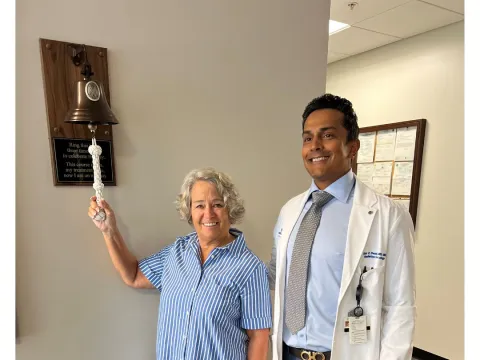
Expanding hope through innovation: AdventHealth advances cancer care across East Florida
Cancer touches nearly every family, and in Flagler, Lake and Volusia counties, the demand for timely, advanced care keeps rising. AdventHealth’s East Florida Division, which includes seven hospitals...

For two Hope Clinic patients, music spurs recovery
STROKESTRA heals stroke survivors in so many meaningful ways.
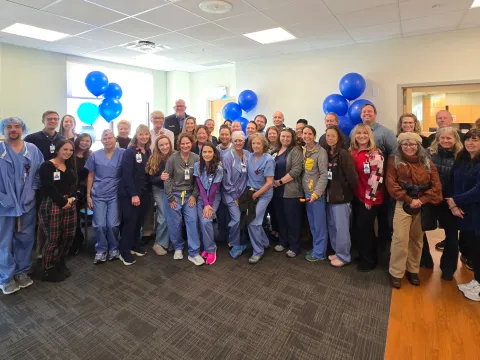
A new chapter begins: AdventHealth Avista opens its on-campus surgery center
This milestone marks a meaningful new chapter for a team whose history stretches back more than two decades.

AdventHealth Porter Performs Rare, Complex Robotic Kidney Cancer Surgery
AdventHealth Porter has reached an extraordinary milestone in surgical innovation, completing what is believed to be the first robotic left radical nephrectomy with inferior vena cava (IVC)...
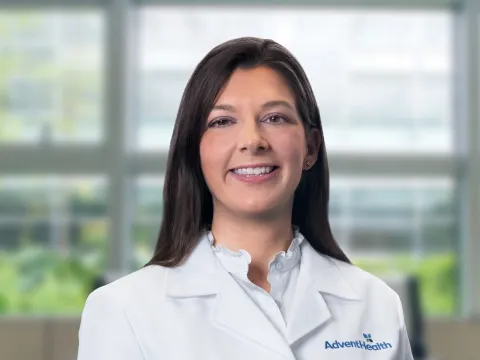
Amanda Robinson, DO, joins AdventHealth Medical Group Family Medicine, Internal Medicine & Pediatrics at Curtis Parkway
AdventHealth is pleased to announce that Amanda Robinson, DO, has joined AdventHealth Medical Group Family Medicine, Internal Medicine & Pediatrics at Curtis Parkway.

Helping the Helpers: Spotlight on AdventHealth Avista’s Director of Supply Chain, Mike Vos
For Mike Vos, Director of Supply Chain at AdventHealth Avista, caring for others isn’t just part of the job - it’s woven into his family story. With a mother who is a career nurse and now Director of...
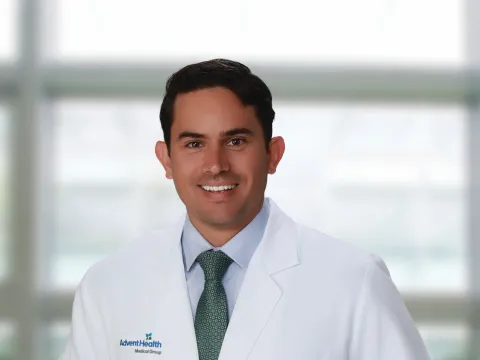
New surgeon expands local access to advanced colorectal care in Volusia County
Dr. Mark Heimberger joins AdventHealth as part of its continued investment in bringing minimally invasive and robotic colorectal treatment options to the region’s growing community.
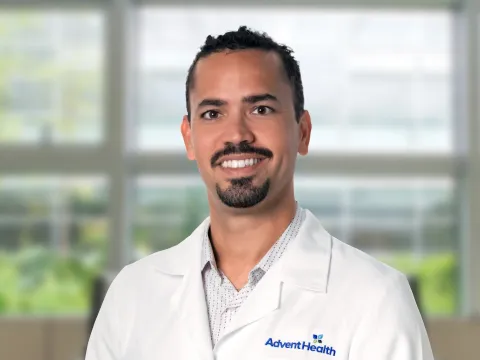
Albit Paoli, MD joins AdventHealth Medical Group Orthopedics & Sports Medicine
AdventHealth is pleased to announce that Albit Paoli, MD, has joined AdventHealth Medical Group Orthopedics & Sports Medicine at Calhoun and AdventHealth Medical Group Orthopedics & Sports Medicine at...

Dr. Phillips Center launches free Frontyard Holiday Festival supported by AdventHealth
The Dr. Phillips Center is launching its first-ever Frontyard Holiday Festival supported by AdventHealth.

AdventHealth expands access to primary care in the heart of DeLand
AdventHealth has opened a new Primary Care+ location in the heart of downtown DeLand, giving residents a simple way to get everyday care close to where life happens. The primary care practice offers...
